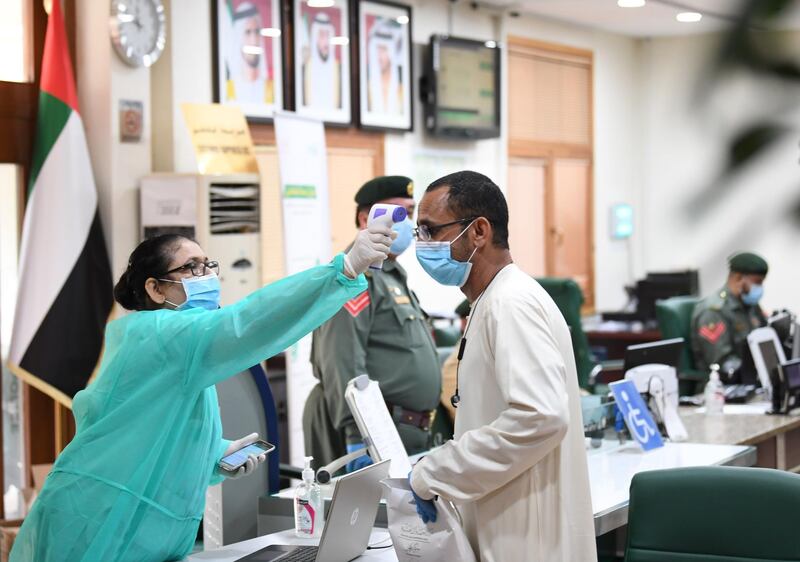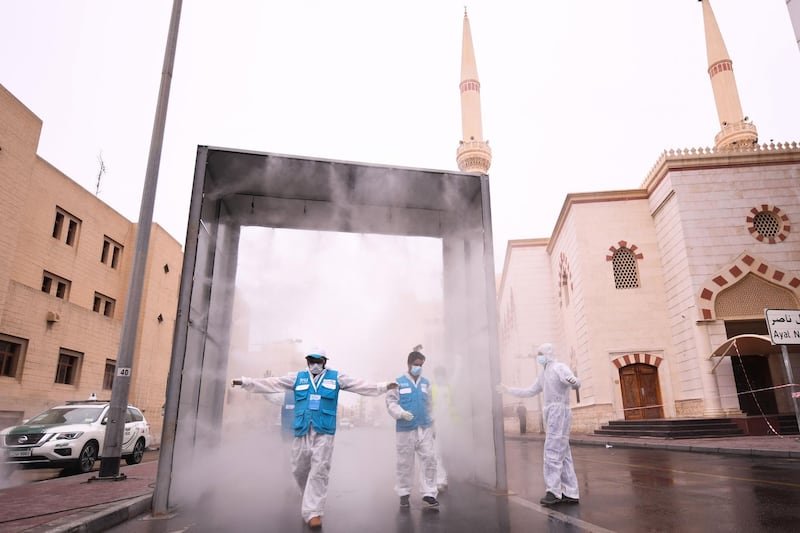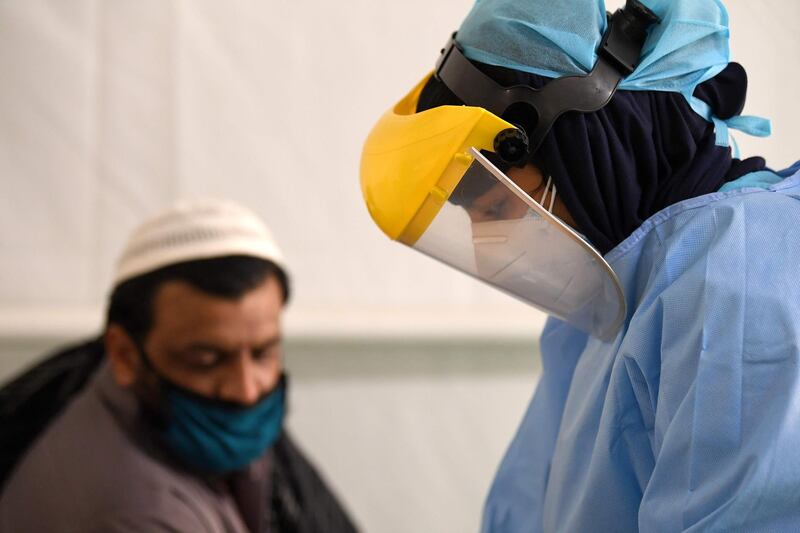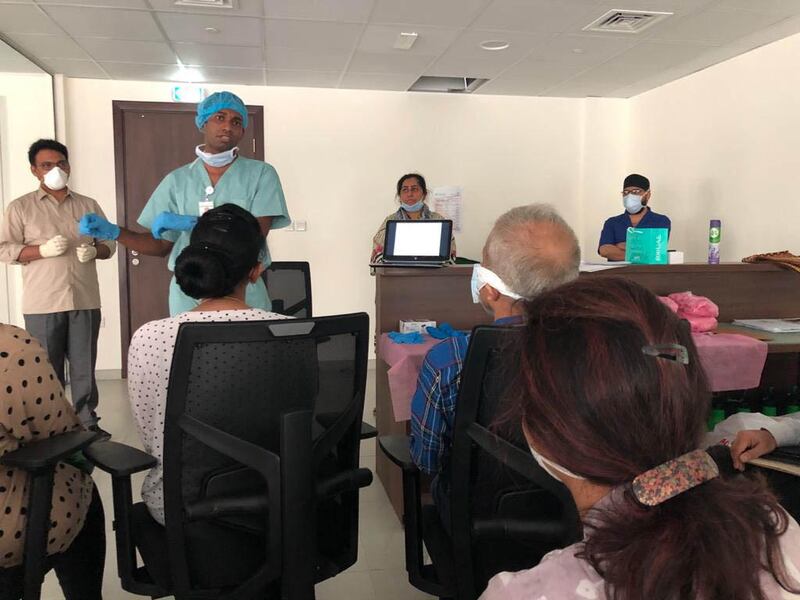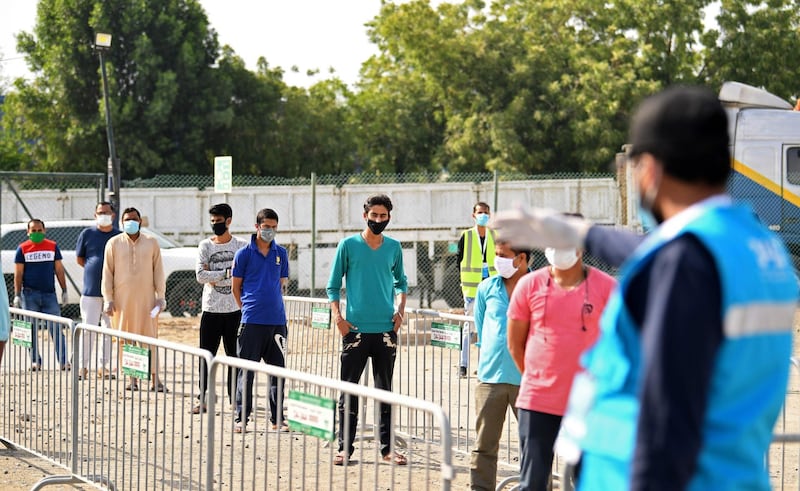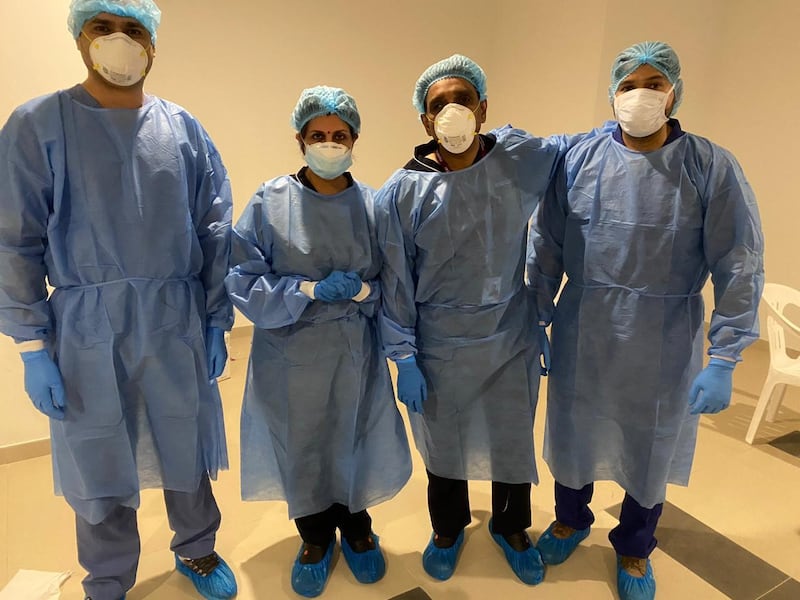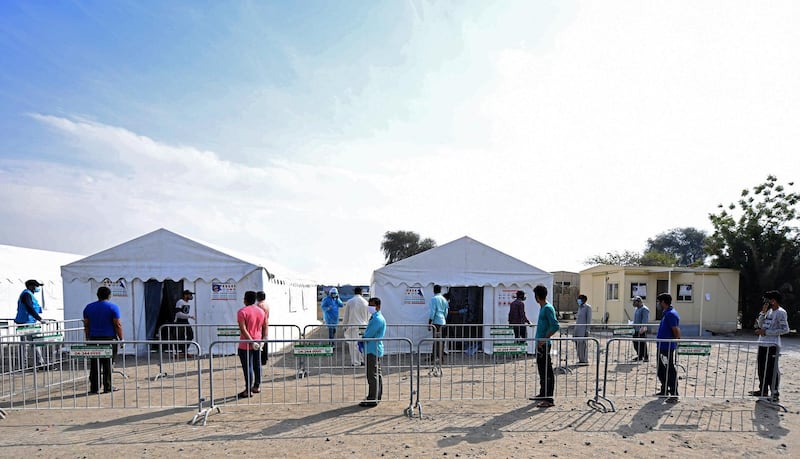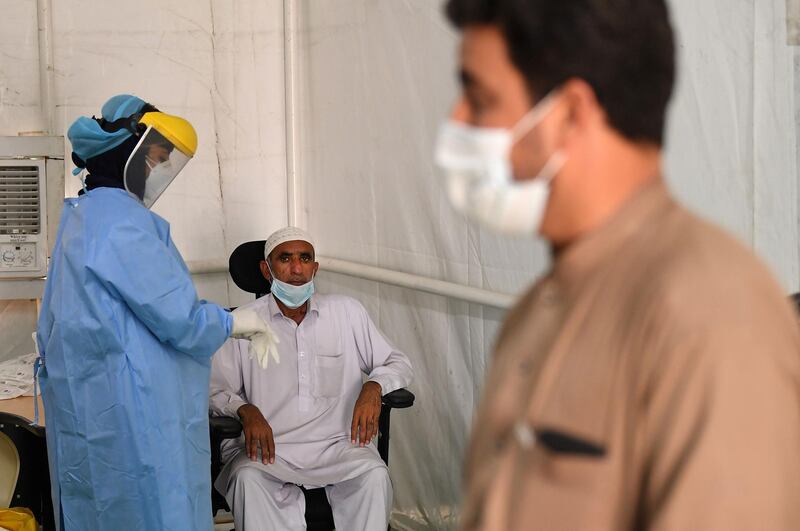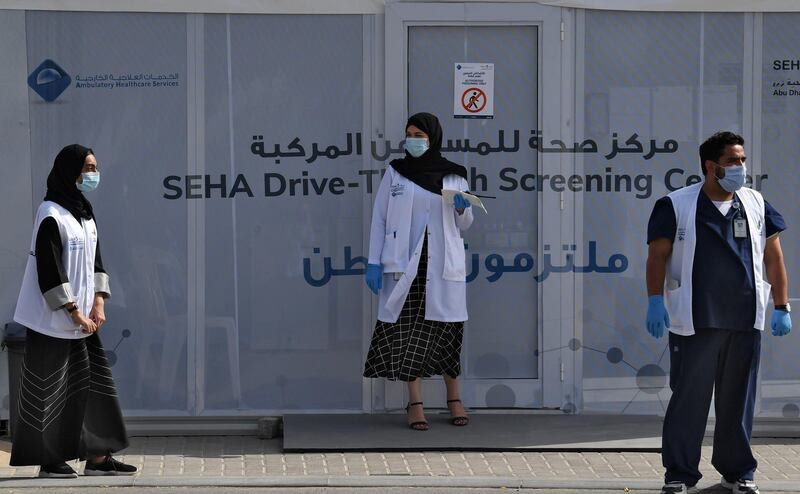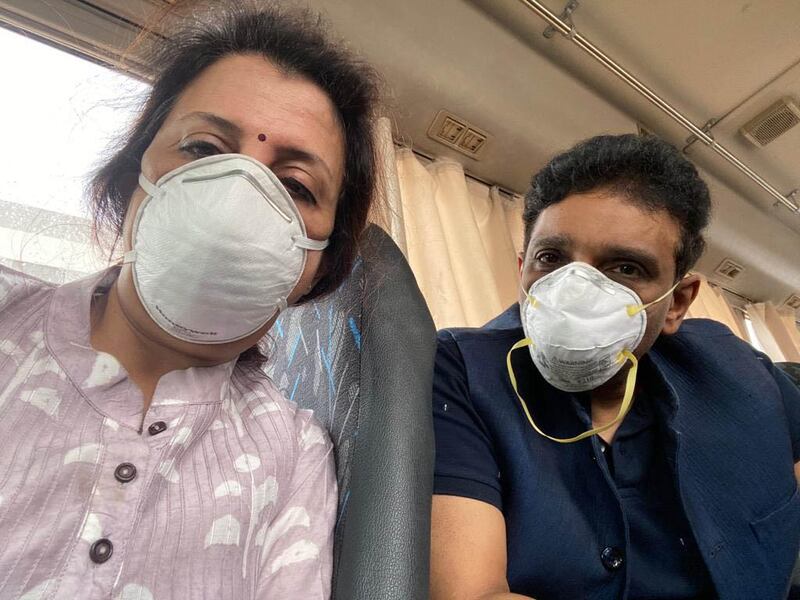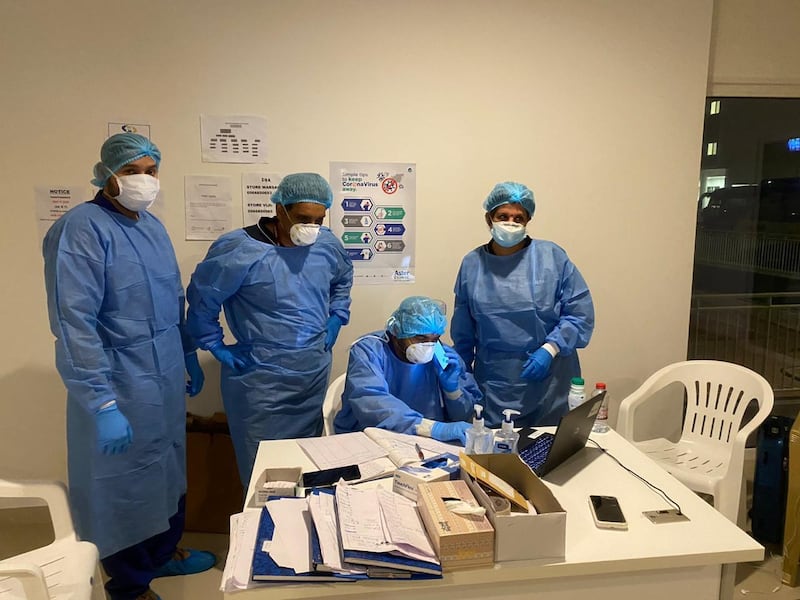Coronavirus patients are being treated by volunteer doctors and nurses in a 500-bed isolation centre in Dubai’s Warsan neighbourhood.
The facility is staffed by about eight doctors and 12 nurses, who wear a double layer of personal protective equipment consisting of face masks, gloves and shoe covers when attending to patients.
Everyone being treated at the centre is mild to moderately ill, but ambulances are on standby to transport anyone whose condition worsens to intensive care units in designated government hospitals.
The centre is allocated cases by local authorities and began admitting patients on Saturday.
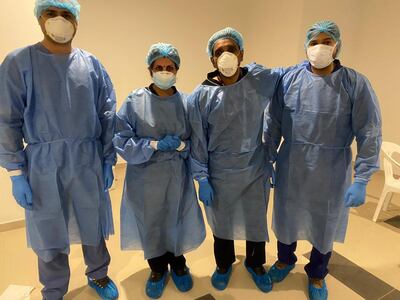
Healthcare workers volunteered their services to help on the invitation of the Indian Consulate in Dubai.
"This supplements Dubai and the UAE's efforts," Mr Vipul, the Indian Consul General told The National.
"We have provided a team of doctors and nurses to look after the patients in one building in Warsan."
The facility was made possible by contributions from the Indian community, with plans for a second 500-bed unit when required.
It is understood that several hundred patients are being monitored by private health care providers working with local authorities in multiple isolation units within a compound of buildings in Warsan.
A doctor couple is among those who have volunteered their services to fight the Covid-19 outbreak.
Their enthusiasm reflects the zeal of the medical fraternity across the country.
Dr JS Rajkumar and his wife Chitrakala lead the team in one isolation centre, which has six rooms set aside as emergency and administration stations.
“This is an incredible effort to decompress the load on the system by getting patients to field hospitals,” said Dr Rajkumar, a general and laparoscopic surgeon.
“That’s the way to handle a pandemic. This is well structured and the support from local authorities is fantastic.”
The Indian doctor operates in Medstar Healthcare in Dubai and is the founder of the Lifeline Hospital group with 23 clinics in southern India’s Chennai state.
Inside the infection zone, patients are asked remain in their room with food and water left outside the door to minimise contact.
Stay home to stop the spread
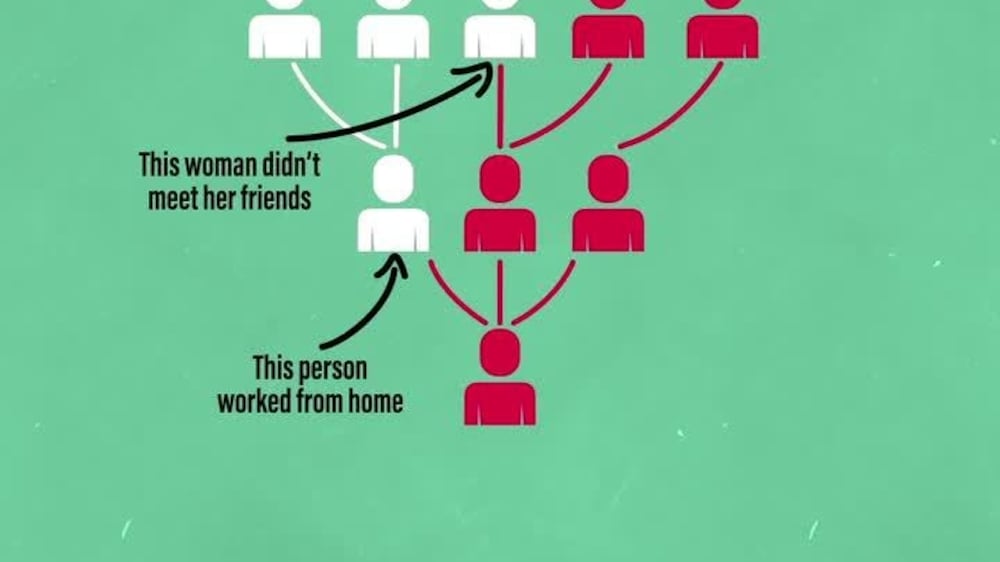
The air-conditioned units have music and free Wi-Fi so patients can stay connected with their families.
“We will ensure patients are taken care of and are comfortable. This is not acute ICU stuff,” the 57-year-old doctor said.
Emergency services are called if a patient’s condition deteriorates with a ‘wet cough’ and temperature of more than 38°C.
“Taking a decision in a few minutes can change somebody’s life,” Dr Rajkumar said.
“There is a fantastic framework in play because ambulances are on standby so we can grab the patients and move them to a hospital immediately.”
Medical staff wear blue suits, an N95 mask covered by a regular surgical mask, gloves and shoe covers.
When attending to patients, doctors and nurses add an extra layer of yellow overalls, an additional mask, a visor and gloves.
The second layer is stripped off after each patient examination.
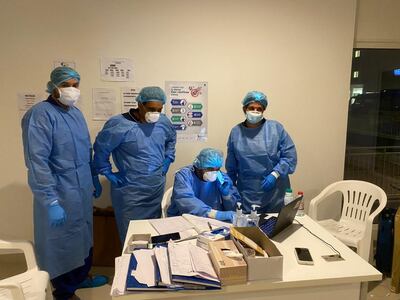
“Anytime we have any form of contact with a patient we peel off the outer layer and wear one more when we see the next patient and then remove that,” he said.
“This is to reduce the transmissibility. The main reason is because there is no doubt here that all the patients are positive.”
The doctor and his wife Dr Chitrakala Rajkumar, an internal medicine physician, responded to a call from the Indian consulate asking for volunteer medical professionals.
Across the country, residents have offered their help when appeals have gone out from the UAE government.
The couple live alone in Dubai as their children and grandchildren are in India.
They adhere to strict isolation rules and stay home after completing shifts at the isolation centre.
Meanwhile, other staff live in accommodation within the facility to prevent exposing their families to potential infection.
Apart from the physical care, patients can also require counselling.
“It can get lonely and people get depressed and lose confidence,” Dr Chitrakala said.
“Health care workers have to be extra positive so we actually infuse positivity in patients.
"It’s emotional support they need so we all have to be mentally strong.
“[This is] a global disaster like nothing we have seen in our lifetime so we want do our part and pitch in. We cannot stand aside and not help.”
